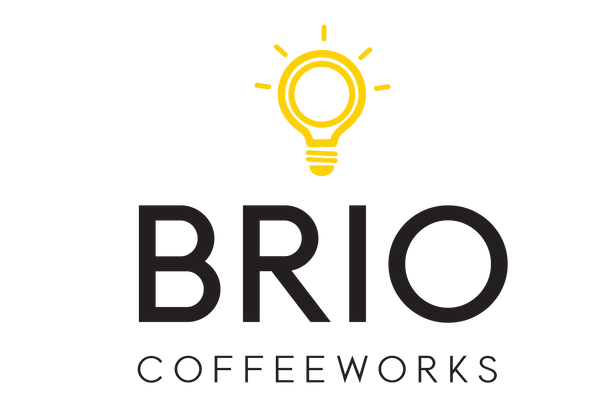Truth #1: There’s a lot of bad decaf coffee out there.
Truth #2: There are fantastic decaf coffees if you know where to look.
When we started Brio Coffeeworks, we set out to find outstanding coffees for the customers who want to experience sweet and complex flavors, but without the
buzz. This task was actually easier than we thought it would be. Modern decaffeination methods paired with well-sourced, quality green coffee produce a finished product that any aficionado would appreciate.
 Historically, the green coffees destined for decaffeination were of lower quality and the decaffeination methods utilized were aggressive. Factories used harsh chemicals like benzene (later proved to be carcinogenic) and high pressure, stripping out the good stuff (flavor) along with the unwanted caffeine. The decaf landscape is very different today. Many decaf coffees begin their journeys with high quality raw material, farmed and processed responsibly. From there, they undergo a process of decaffeination that respects the inherent sweetness, complexity, and terroir of the coffee.
Historically, the green coffees destined for decaffeination were of lower quality and the decaffeination methods utilized were aggressive. Factories used harsh chemicals like benzene (later proved to be carcinogenic) and high pressure, stripping out the good stuff (flavor) along with the unwanted caffeine. The decaf landscape is very different today. Many decaf coffees begin their journeys with high quality raw material, farmed and processed responsibly. From there, they undergo a process of decaffeination that respects the inherent sweetness, complexity, and terroir of the coffee.
At Brio, most of our decaffeinated coffees undergo a process that only uses water and special filters to remove the caffeine. You’ll see these referred to as either Mountain Water Process or Swiss Water Process depending on the company that managed the caffeine removal step.
Occasionally, we also source coffees that have been decaffeinated using water infused with ethyl acetate, derived from sugar cane. All three approaches involve lightly steaming the coffee to open its cellular structure and then steeping it until all of the caffeine has been removed. What’s left behind is a coffee that is notably sweet (caffeine is a bittering agent) and ever so slightly more caramelized once roasted. 
So long as it is treated with the same care at every stage of the supply chain, we believe there is no reason for decaf coffee to be in any way “less than” its regular counterpart--other than caffeine, that is! And we are thrilled to be doing our part at the roasting stage to ensure that more people can enjoy a phenomenal morning, afternoon, or evening cup. If we can change some minds about the limits of decaf’s potential, all the better!
Whether you’re already pro-decaf or are ready to be convinced, we’d love for you to try our decaffeinated options and tell us what you think. Happy drinking!
-Nate


